Germany to bail out UK power station owner as Putin squeezes gas supplies
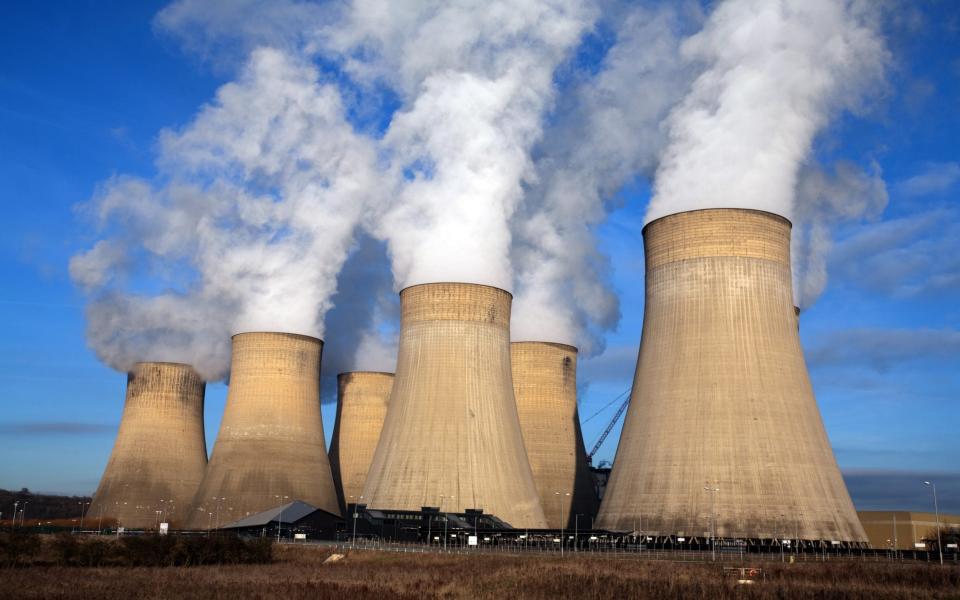
Household incomes suffer longest fall on record – and worse is to come
FTSE 100 slumps 2pc as incomes fall for fourth straight quarter
Ben Marlow: Britain’s defence industry sell-off is self-harm on a gob-smackingly grand scale
Germany is in talks to bail out the owner of seven UK power stations as fears mount about the wider fallout from Russia’s decision to cut gas supplies to Europe.
Uniper, which is the largest buyer of Russian gas in Germany, said it’s discussing a possible increase in state-backed loans or even equity investments to secure liquidity.
Germany’s economy ministry said talks were ongoing to provide “stabilisation measures” for the utility. It added: “The reason for this is the sharp rise in gas prices and the reduced supply volumes from Russia.”
Uniper owns the Ratcliffe-on-Soar power station in Nottinghamshire, as well as a string of other gas plants across the country.
The crisis could also affect Finland, which controls Uniper’s parent Fortum Oyj.
Shares in the German utility plunged as much as 23pc to the lowest level in over five years.
06:10 PM
Wrapping up
That's all from us today, thank you for following! Before you set off for the evening, have a look at the latest stories from our reporters:
Elon Musk escalates Tesla’s war on working from home with 'please explain' emails
Water bills at risk of one-fifth increase to rid rivers of sewage
Amazon blocks LGBTQ searches in UAE after political pressure
Expand congestion zones and tolls to force drivers out of cars, says Boris Johnson adviser
06:08 PM
UK to pay new £27.3m subsidy to royal family
UK taxpayers will pay an additional £27.3m over the next two years to plug a funding gap at the royal family and cover a drop in profit at the Crown Estate, which helps pay their expenses.
Demands for more government cash follow a 17pc increase in spending by the royals last year and comes at a time when the average UK household income fell for the longest period since records began in 1955.
Royal spending rose 17pc in the fiscal year through April 2022 to £102.4m, the family’s latest accounts released today show. Most of the gain came from a 29pc jump in the £69.3m cost of maintaining the monarch’s properties, including Buckingham Palace, St. James’s Palace, Windsor Castle and other royal residences.
Sir Michael Stevens, the Queen’s accountant and Keeper of the Privy Purse, said the year included “operational and financial challenges,” in part because Covid curtailed events and restricted tourist access to the Royal Palaces that helps to bring in revenue.
05:47 PM
Saudi Arabia in talks over Aston Martin investment
Saudi Arabia is poised to take a stake in struggling Aston Martin as the debt-ladened luxury car marque scrambles to raise money to secure its future. Howard Mustoe reports:
Shares in the century-old sports car maker briefly fell to their lowest price ever on Thursday amid fears investors could see their stakes reduced.
Aston Martin said it “regularly keeps its funding options under review,” adding: “Any funding option, if explored and executed, would be to support and accelerate the company's future growth.”
Industry magazine Autocar reported Aston Martin was seeking £200m in funding. Saudi Arabia’s Public Investment Fund is in talks to inject cash in exchange for an equity stake, the Financial Times reported. Saudi Aramco, the state oil company, is already a sponsor of Aston Martin’s F1 team.
A spokesman said: “Aston Martin does not comment on rumour or speculation.”
05:28 PM
FTSE 100 slumps 2pc
The FTSE 100 has recorded its first quarterly drop since September 2020, as concerns grew that prolonged inflationary pressures would force central banks to act aggressively, leading to a global economic downturn.
The blue-chip index dropped 2pc to 7,169 today and posted its biggest monthly decline since March 2020. Still, its exposure to commodity-linked firms and global companies helped it outperform its global peers this year.
Azad Zangana, a senior European economist and strategist at Schroders, said: "The FTSE 100 has very little to do with the UK economy itself, so the local recession is less impactful.
"But if we were to see a global recession, we would eventually see a hit to demand for commodities, so that area could potentially suffer."
05:08 PM
BT workers vote for first strike since 1987
Tens of thousands of BT’s unionised workers have voted in favour of the first national walkout from the company in more than three decades.
The collapse of pay rise negotiations in April led the UK’s Communication Workers Union to ballot more than 40,000 members on whether to take industrial action, the results of which were announced today.
CWU General Secretary Dave Ward said the decision was “achieved despite a real culture of fear that has been imposed in the last couple of years by the BT management,” and that the union expects BT “to come to the table with a significantly improved offer” to avoid strike action.
If the walkout went ahead, it would be the first BT-wide strike since 1987, three years after it was privatised by Margaret Thatcher, according to BT and the CWU. Smaller localised walkouts have happened as recently as last year, however.
HISTORY HAS BEEN MADE. BRITAINS FIRST EVER NATIONAL CALL CENTRE WORKERS BALLOT - 80% OF MEMBERS WORKING FROM HOME.
A huge chunk of our 10,000 BT Group members.
YES 91.5%
TURNOUT 58.2%
No worker is unreachable.
Everybody counts or nobody counts. pic.twitter.com/35NjHPaEqy— The CWU (@CWUnews) June 30, 2022
04:47 PM
Apple loses attempt to dismiss £1.5bn competition law case
Apple has lost an attempt to dismiss a £1.5bn competition law case over in-app purchases after judges said it has a "realistic prospect of success". Gareth Corfield writes:
The case, brought by King’s College law lecturer Rachael Kent, argues Apple caused 19m British iPhone and iPad users to be overcharged when buying through apps on their phones and tablets.
Rejecting Apple’s bid to have Ms Kent’s case thrown out, judge Ben Tidswell ruled on Wednesday that there was a “realistic prospect” of her claim succeeding. It will now proceed to a full trial.
“In doing so we express no view on the merits of [Ms Kent]’s case or the arguments advanced by Apple in response,” the Competition Appeal Tribunal said.
04:26 PM
Universal Music Group buys Frank Zappa’s estate

Universal Music Group has agreed with Moon, Dweezil, Ahmet and Diva Zappa (the Zappa Trust), to acquire Frank Zappa’s estate.
This includes his recordings, publishing catalogue of songs, film archive, and the complete contents of The Vault, the storage facility that houses the late Zappa’s life’s work.
The group's president and chief Bruce Resnikoff said: “Zappa was a pioneering, visionary artist who created an incredible body of work and we are incredibly proud that Gail, and now his children, have entrusted us with his important legacy.
"We will continue to develop innovative ways to celebrate his vast and influential catalogue for both longtime fans and those just discovering his genius.
"As a prolific artist well ahead of his time, Frank Zappa was constantly creating and recording and he left behind a treasure trove of extraordinary still-unreleased music and video in his Vault that will help us usher in the next era of Frank Zappa fans.”
04:05 PM
Government pledges higher fees for some barristers amid strikes
The Government has pledged to raise fees for some barristers after trial lawyers walked out this week in protest following a long-running spat over state funding and pay.
The Ministry of Justice said it will increase the fees by 15pc from the end of September for work in police stations, magistrates court and youth courts. The Government said the move, less than the increase demanded by the lawyers, would boost the average pay of a criminal barrister by about £7,000.
“Our energetic efforts to tackle the courts backlog are working but the strike action by criminal barristers threatens all that progress, despite the very generous pay offer on the table,” said James Cartlidge, the justice minister.
Members of the Criminal Bar Association, which represents thousands of barristers in England and Wales, walked out this week after its members backed strike action following government cuts of the legal aid budget and a record backlog of court cases. The CBA said many of its members have been forced into personal debt and junior barristers earn a median income of £12,220 a year.
04:01 PM
Handover
Hi all, it's Giulia Bottaro taking over from James Warrington for the rest of the day.
03:25 PM
Bruising encounter with culture wars puts Disney boss centre stage

Bob Chapek knew he was taking on a challenge worthy of any Marvel superhero when he was made Walt Disney’s chief executive, writes James Titcomb.
Chapek, the little-known head of the entertainment giant’s parks and travel business, was succeeding Bob Iger, the boss of 15 years who had steered Disney through a series of transformational acquisitions including Pixar in 2006 and 21st Century Fox in 2019.
In February 2020, Chapek becoming only the seventh chief executive in the company’s 97-year-old history, a line that included corporate legends such as Michael Eisner, Donn Tatum and Roy Disney, Walt’s older brother.
On Tuesday, Disney’s board threw its weight behind Chapek and renewed a contract that had eight more months, by three years, despite a damaging row over his handling of Florida’s so-called “Don’t Say Gay” bill.
The embattled boss is now tasked with steering the entertainment behemoth through the double challenge of the US culture war and a squeeze on demand for online video.
02:57 PM
Barclays raises salaries for 35,000 staff
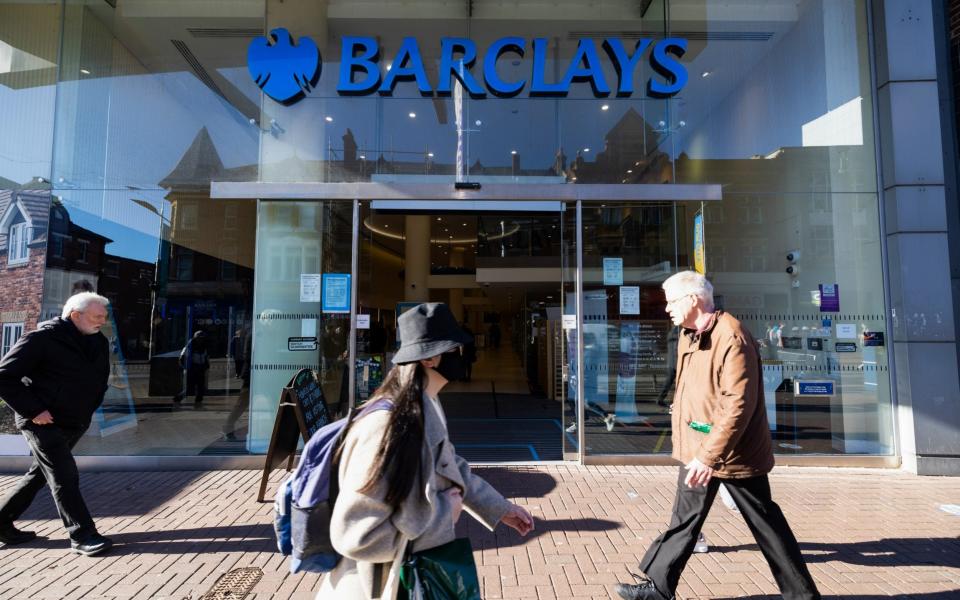
Barclays has become the latest big business to raise staff pay in response to a cost of living squeeze and tight labour market, writes Patrick Mulholland.
The high street bank announced on Thursday it would give a pay bump of up to 5.5pc to staff who work in branches and junior support roles to help ease the cost of living crisis.
It will raise the salaries of 35,000 UK-based workers at the lower end of the pay scale by £1,200 from August 1.
“This increase brings forward part of the annual pay review that would normally have come into effect in March next year,” a spokesman said.
“Barclays will continue to monitor the economic situation globally and consider our approach to pay in each country in the local context.”
PwC recently announced a 9pc pay rise, its biggest increase in 10 years, to help staff cope with the rising cost of living.
Earlier this month, Lloyds said it would issue a one-off payment to 64,182 employees – almost its entire workforce – later this summer.
02:36 PM
Wall Street drops amid recession fears
Wall Street has followed the FTSE 100 sharply into the red as a slowdown in US consumer spending compounded fears of a looming recession.
The benchmark S&P 500 dropped 1.3pc at the opening bell, while the Dow Jones lost 1.5pc. The tech-heavy Nasdaq was down 1.6pc.
02:25 PM
Ben & Jerry’s attacks Unilever for forcing end to Israel boycott
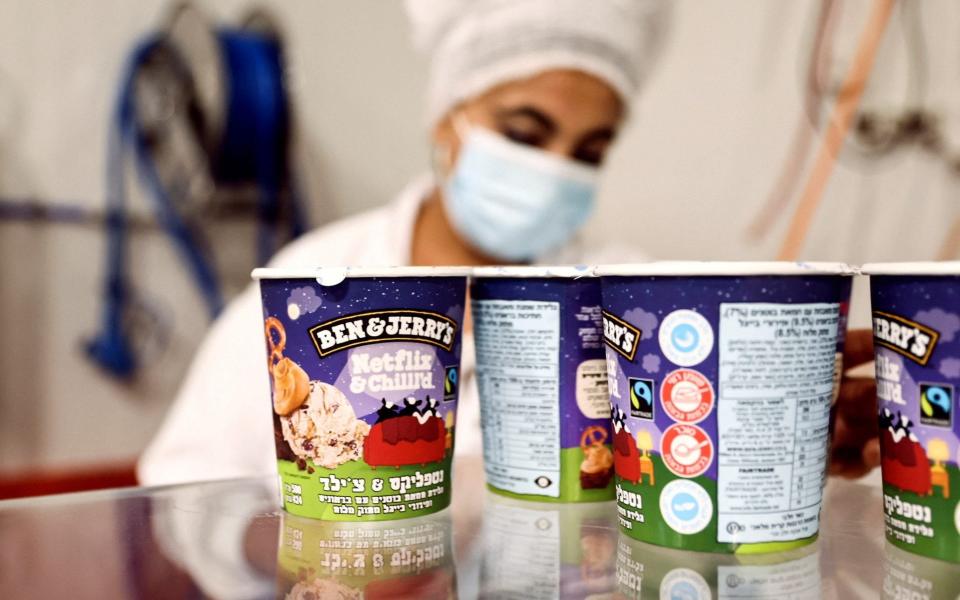
Ben & Jerry’s has hit back at its owner Unilever for forcibly ending its boycott of Israel, saying selling its ice cream in occupied Palestinian territories remains "inconsistent" with its values.
Hannah Boland reports:
Unilever overruled Ben & Jerry’s independent board on Wednesday by selling the division’s Israeli operations to its franchise partner in the country.
The move came after the ice cream brand stopped sales of its product in occupied Palestinian territories in a political protest.
The company said the sale means Ben & Jerry’s will no longer profit from its ice cream in Israel.
Unilever yesterday slapped down Ben & Jerry's stance on selling in the region, saying it "rejects completely and repudiates unequivocally any form of discrimination or intolerance".
We continue to believe it is inconsistent with Ben & Jerry's values for our ice cream to be sold in the Occupied Palestinian Territory.
(🧵3/3)— Ben & Jerry's (@benandjerrys) June 29, 2022
02:16 PM
FTSE 100 drops 2pc
The FTSE 100 has extended its losses in a torrid day for markets.
The blue-chip index is now down 2.2pc, with almost all stocks sinking into the red.
At this rate, the index will suffer its worst month since the outbreak of Covid in March 2020 and its first quarterly loss since September of the same year.
01:50 PM
US spending declines for first time this year
US inflation-adjusted consumer spending fell in May for the first time this year as soaring prices began to batter household budgets.
Purchases of goods and services, adjusted for changes in prices, fell 0.4pc in May, according to the Commerce Department. That followed a downwardly-revised 0.3pc gain the previous month.
While spending on services continued to rise, the overall figure was dragged down by lower spending on goods.
The personal consumption expenditures price index, which the Federal Reserve uses for its inflation target, rose 0.6pc and was up 6.3pc from May 2021.
The core PCE price index increased 0.3pc, which was less than expected.
01:37 PM
Ukrainian refugees drive up German unemployment
Germany unemployment unexpectedly rose this month after the country welcomed hundreds of thousands of refugees from Ukraine.
Joblessness jumped by 133,000 in June, lifting the jobless rate to 5.3pc. That marks the highest since November and snapped 15 straight months of decline.
Detlef Scheele, head of the Federal Labour Agency, said: "The labour market as a whole continues to be stable. These increases are due to the fact that the Ukrainian refugees are now being recorded in the job centres and are therefore visible in the labour market statistics."
As of last month, more than 700,000 people fleeing the war in Ukraine had been recorded in Germany.
Germany could end up hosting a large share of the new arrivals, even though Poland is currently the top destination for recently displaced people. That's because there was already a large number of Ukrainian migrants in Germany before the war.
01:10 PM
Elon Musk escalates Tesla’s war on working from home
Elon Musk has stepped up his campaign against working from home by targeting Tesla staff who fail to turn up often enough with automated demands for an explanation.
Gareth Corfield has the story:
The carmaker is tracking how many times its workers swipe into offices and sending messages to those who do not swipe enough warning that all staff are expected in the office during normal working hours.
The Telegraph has seen a screenshot of an email sent to staff which says: “You are receiving this email because there is no record of you using your badge to enter a Tesla facility on at least 16 days over the 30-day period ending on June 28.
“As a reminder, all employees are expected to be back in the office, full-time.”
Staff receiving such emails must send an explanation of their absence to line managers and also to a central monitoring point.
Posts on the Blind workplace discussion forum from Tesla staff suggest the new policy is proving unpopular.
12:30 PM
Boots sales surge as owner ditches sale
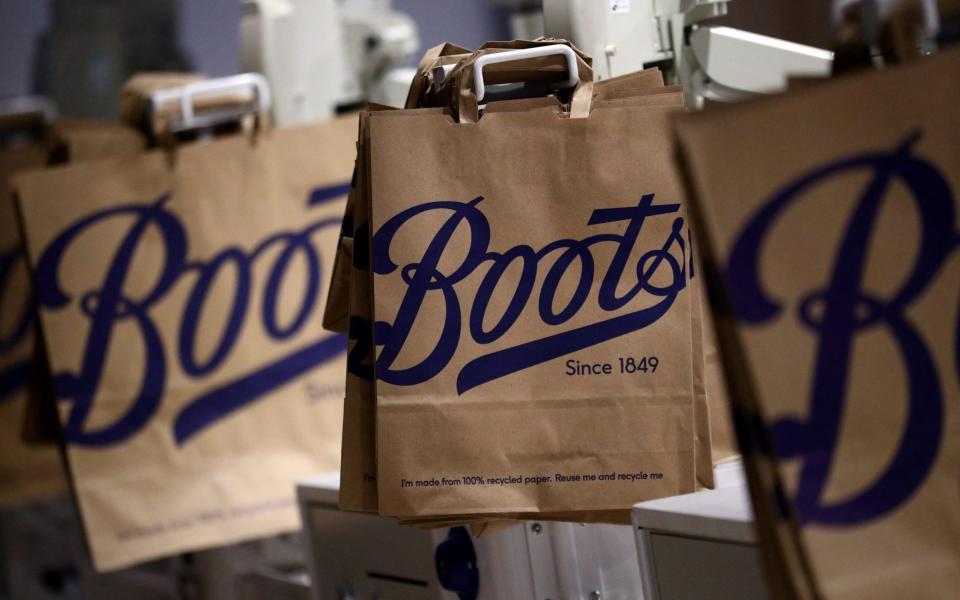
Boots has revealed a surge in sales over the past quarter as shoppers flooded back to UK high streets.
US owner Walgreens Boots Alliance said sales at the chemist grew by 13.5pc as soaring retail demand offset a slight decline in pharmacy sales.
It comes just days after Walgreens said it was ditching plans to sell Boots after it struggled to secure a high enough bid amid wider economic turmoil.
Private equity fund Apollo and Indian tycoon Mukesh Ambani had been in pole position to acquire Boots after Walgreens chairman Stefano Pessina put the business up for sale in January.
But a £5bn approach — considerably lower than the £7bn Mr Pessina is said to have wanted — fell through.
The US group may now revive plans for a stock market float of Boots next year.
12:21 PM
US futures tumble on growth fears
US futures tumbled on the last day of a torrid first half amid growing concerns that rising interest rates will push the global economy into recession.
Investors will turn their attention to the core personal consumption expenditure price index – the Fed's favoured inflation measure – for signs of whether price rises have peaked.
The index is expected to rise 0.4pc in May, up from 0.3pc the previous month.
The S&P 500 index is on track to end the first half of the year with the biggest percentage drop since 1970, while the Nasdaq Composite was set for its largest declines ever during the same period.
Futures tracking the S&P 500 fell 1pc, while the Dow Jones was down 1.3pc. The tech-heavy Nasdaq shed 1.7pc.
11:59 AM
Germany in talks to bail out energy giant Uniper
Germany is in talks over a bailout of energy giant Uniper as fears mount about the wider fallout of Russia's decision to cut gas supplies to Europe.
Uniper, which is the largest buyer of Russian gas in Germany, said it’s discussing a possible increase in state-backed loans or even equity investments to secure liquidity. The crisis could also affect Finland, which controls Uniper’s parent Fortum Oyj.
Germany's economy minister said talks were ongoing to provide “stabilisation measures” for the utility. It added: “The reason for this is the sharp rise in gas prices and the reduced supply volumes from Russia.”
Uniper shares plunged as much as 23pc to the lowest level in over five years. Fortum fell 10pc.
11:38 AM
Hydrogen-powered electric trucks to be made in Britain

A UK truck maker founded by a former Israeli Navy officer will begin selling electric vehicles that use hydrogen to extend their range, paving the way for large-scale usage of the gas in haulage.
Howard Mustoe has the details:
Tevva’s 7.5-tonne trucks will run on batteries for the first hundred miles, using electricity and running more cheaply than a diesel engine.
It will then have more than 200 miles of range from a hydrogen-powered fuel cell system, which can kick in when the battery is depleted. It means truckers will not have to stop for a charge, offering most a full day of driving.
Tevva founder Asher Bennett, a former submarine officer in the Israeli Navy, said the range extenders mean his trucks can do the work of a diesel vehicle without the worry of a flat battery.
"All trucks are meant to go out for a whole day's work, which is different than the average car, which is used for, say, one and a half hours a day," he said. "You need a lot more energy on that truck so that the operators are not concerned about using it on the longer ranges.
Read Howard's full story here
11:13 AM
Ryanair reaches pay deal with pilot union
Ryanair has reached an agreement with pilot union Balpa over post-Covid pay, but it's still facing strikes outside the UK.
The budget airline said the deal will accelerate pay increases to match pre-pandemic levels and then deliver pay rises until 2026.
Darrell Hughes at Ryanair said: "While the recovery from the impact of the pandemic is still ongoing and our industry faces significant challenges, this long-term agreement delivers stability, accelerated pay restorations, future pay increases and other benefit improvements for our UK pilots."
But Ryanair is still facing trouble elsewhere, with cabin staff staging walkouts in Belgium, Spain and Portugal last week in a dispute over pay and conditions.
10:56 AM
Mike Ashley takes stake in MySale as acquisition spree continues
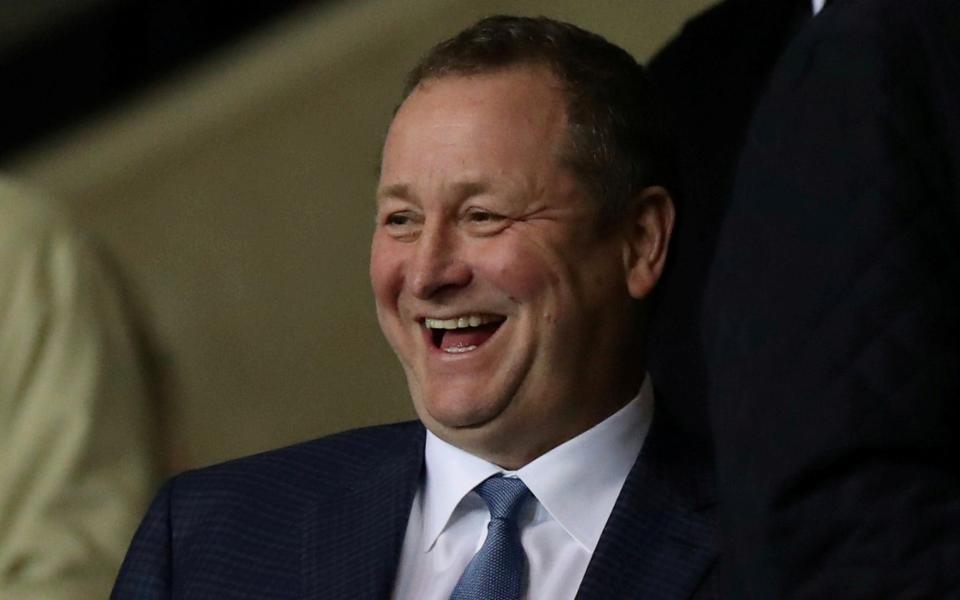
Mike Ashley's Frasers Group has snapped up an almost 30pc stake in Australian fashion marketplace MySale as his retail buying spree continues.
Frasers said it acquired a 28.7pc shareholding in MySale, which connects buyers and sellers across the globe to ecommerce sites in Australia and New Zealand, for an undisclosed sum.
Frasers said the acquisition "creates an opportunity for a strategic partnership whereby end of line group products can be cleared via an established clearance channel".
It's the latest investment for the retail tycoon after his empire increased its stake in luxury brand Hugo Boss last week.
10:42 AM
UK tells airports and airlines to avoid summer disruption
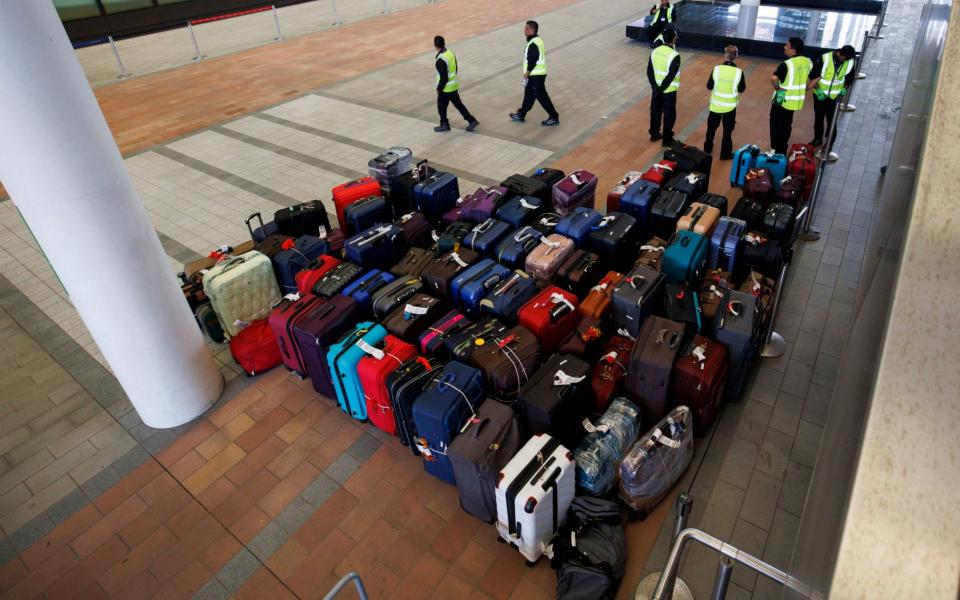
The Government has told airlines it's up to them to avoid a repeat of recent chaotic scenes at airports during the upcoming holiday season.
Transport minister Grant Shapps said: "It's now on airports and airlines to commit to running the flights they've promised or cancel them with plenty of time to spare so we can avoid the kind of scenes we saw at Easter and half term."
The comments came alongside a 22-point plan on what ministers were doing to help the industry. The Government last week relaxed rules around airport slots to allow airlines to devise realistic flight schedules and avoid last-minute cancellations.
Heathrow this morning told airlines to cancel 30 scheduled flights amid concerns there were more passengers than it could safely handle.
10:35 AM
Winter gas supply is 'tight calculation', warns Germany
Germany's economy minister has warned assuring the country's gas supply for the winter months will be a "tight calculation".
Robert Habeck said the country was refilling its storage sites at the moment, but only because the Government was willing to pay high prices for energy.
He said: "The good news is we are getting gas. The bad news is we are paying top prices for it."
Mr Habeck said storage facilities were about 60pc full at this point, and needed to reach above 90pc for the winter heating season.
Germany is also working on alternative fuel supplies, partly by commissioning liquefied natural gas terminals and opening up other sources of natural gas.
Still, Mr Habeck struck a more upbeat tone for next year, saying there could be a "strong economic rebound" for the country.
He added: "If we can get through the winter with a stable energy supply, then we will see a strong, long-delayed rebound in the economy, which will then combine with climate protection measures, next year."
10:21 AM
Expand congestion zones and tolls to force drivers out of cars, says Boris Johnson adviser

Congestion charging zones, low traffic neighbourhoods and road tolls must be introduced across Britain to drive the public away from using cars, Boris Johnson’s infrastructure adviser has said.
Oliver Gill has more:
The National Infrastructure Commission (NIC) has published a report warning ministers against a “wait and see” approach towards encouraging drivers to switch to public transport.
In a report, it said that low-traffic schemes and congestion charges should be introduced outside London and road tolling should be rolled out at a local as well as national level.
Sir John Armitt, chairman of the government-backed body, said: “With many cities already back to pre-pandemic road congestion levels, a shift in demand from cars to public transport and active travel is the most sustainable route open.
“In some places this transition will need to be supported by demand management schemes, carefully designed to shift rather than reduce journeys overall.”
10:06 AM
Rail strikes drag down UK economy
Key measures of real-time activity in the UK economy fell last week as the biggest rail strike in 30 years wreaked havoc across the country.
Trips to transit stations fell 6pc in the week to June 26, while there was also a decline in the number of transactions at most Pret A Manger stores.
The average number of diners fell 16 percentage points to 111pc of pre-Covid levels, while there was a 1pc fall in traffic camera activity for pedestrians and cyclists in London.
The average number of daily flights also fell 1pc to 5,646 as staff shortages continued to spark travel chaos for airports and airlines.
Consumer behaviour indicators showed decreased activity this week, with transit station visits decreasing by 6% from the previous week.
“Retail and recreation” and “grocery and pharmacy” visits were unchanged from the previous week https://t.co/GQBljKcVJC pic.twitter.com/ZvN4tfXwXb— Office for National Statistics (ONS) (@ONS) June 30, 2022
09:56 AM
Pound rises after Andrew Bailey comments
Sterling has pushed higher against the dollar, breaking a three-day streak of losses as investors turned their attention back to surging inflation.
Bank of England Governor Andrew Bailey yesterday vowed to act "more forcefully" if sky-high inflation persists. That's despite the risk of Britain being plunged into recession.
Data out this morning showed UK incomes are on their longest downwards slide on record, while the current account deficit widened to a record £51.7bn.
The pound rose 0.3pc against the dollar to $1.2155. Against the euro it was up 0.2pc at 85.95p.
Lee Hardman at MUFG said:
The BoE is facing one of the toughest policy trade-offs in the near term as it tries to balance increasingly elevated inflation against slower growth which remains a negative fundamental backdrop for the pound.
09:40 AM
Ocado beefs up partnership with France's Casino

Online supermarket Ocado has extended its partnership with French retail giant Groupe Casino.
The move includes the launch of a joint venture to provide logistics services to warehouses powered by Ocado across France, which will be available to all grocery retailers in the country.
The two companies signed a preliminary agreement in February to develop and manage two so-called customer fulfilment centres – where providers sort customer orders for online retailers – in France.
The new deal means Casino will also be able to roll out Ocado's technology to its Monoprix stores.
09:20 AM
EU regulation threat sends Bitcoin crashing
Bitcoin is on track for its worst quarter in more than a decade amid reports the EU is seeking an agreement on cryptocurrency regulation across the bloc.
The world's largest cryptocurrency fell as much as 4.4pc this morning to just above $19,000 after Reuters reported the EU was close to tightening the screws on the notoriously volatile sector.
Bitcoin's 58pc slump this quarter is the largest since the third quarter of 2011, when Bitcoin was still in its infancy, according to Bloomberg data.
The decade in-between has seen several booms and busts, with the overall crypto market at one point surging to a value of more than $3 trillion.
But those gains have now gone sharply into reverse as rates rise and investors ditch riskier assets – not to mention huge regulatory scrutiny amid concerns about a threat to financial stability.
A string of high-profile crypto crashes have led to warnings that the sector is heading for a "crypto winter".
09:11 AM
National Grid to pay energy firms to cut power use
National Grid is asking energy companies how much electricity demand they'll be able to cut this winter to help keep the lights on.
The network operator sent a request to some firms last week asking for details and how much they'd need to be paid to reduce operations, Bloomberg reports.
It's the latest effort by National Grid to avoid blackouts over winter as the escalating energy crisis threatens supply across Europe.
Putin has slashed gas supplies to the continent, and there are fears he could turn off the taps completely.
The document showed National Grid is exploring a price range for potential payments, ranging from £100 a megawatt-hour to as high as £6,000.
It's also working on a service for households to receive payments for reducing electricity use at peak times. This would be available to 27.8m homes and small businesses with smart meters.
09:03 AM
French inflation hits record high of 6.5pc
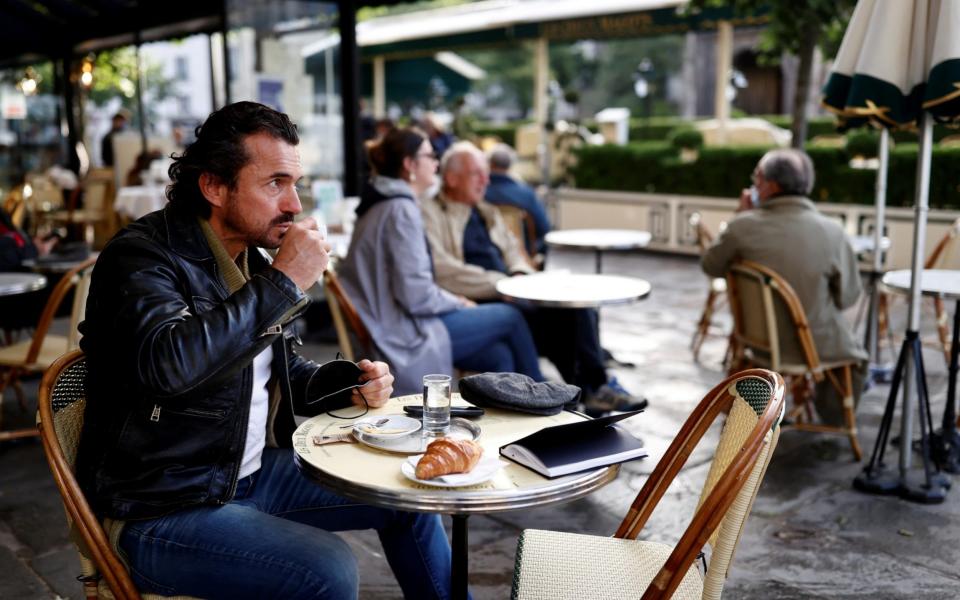
Brits aren't alone in grappling with surging prices – French inflation has also just jumped to a record high.
Inflation climbed to 6.5pc in June, according to the latest official figures. That marked a 0.8pc rise from the previous month and outstripped economists' expectations.
Much like in the UK, food and energy are the biggest drivers of price rises as Russia's war in Ukraine continues to wreak havoc across the global economy.
It follows figures from Germany that showed an unexpected easing of inflation to 8.2pc, though this was caused largely by Government measures. Meanwhile, Spanish inflation rose to 10.2pc – the first time it's surpassed 10pc since April 1985.
08:50 AM
House price fall 'now unavoidable'
House price falls are likely to be “unavoidable”, experts have warned, after property market growth slowed for the third month in a row.
Melissa Lawford has the story:
Prices rose by 10.7pc in the year to June, down from a rate of 11.2pc in May, according to Nationwide building society.
Property prices climbed by just 0.3pc month-on-month, a third of the 0.9pc average recorded over the previous 12 months, as rising interest rates crippled home buyers.
Gabriella Dickens, of Pantheon Macroeconomics, a research group, said: “Looking ahead, we now think that a fall in house prices is pretty much unavoidable given the recent jump in mortgage rates.”
The rate for a two-year fixed-rate 25pc deposit mortgage rose from 1.53pc in November to 2.63pc in May, the fastest increase over a six month period since 2003. This means a typical buyer now has to pay an extra £1,980 in mortgage bills compared to at the end of last year.
Pantheon said it expected the average mortgage rate to rise to 3.2pc in July, which will cost the average borrower an extra £150 per month. House prices will fall by 2pc in the next six months, it said.
08:45 AM
Reaction: Recession is a 'real risk'
Paul Dales, chief UK economist at Capital Economics, warns there's a risk the country will tumble into recession.
The final first-quarter GDP data leave households looking a bit more vulnerable to the big fall in real incomes that’s going to hit in the second and third quarters.
Although GDP and consumer spending won’t fall as far as real incomes, it’s pretty clear that the economy is going to be very weak for a while. A recession is a real risk.
Of course, with inflation high and still rising, this won’t prevent the Bank of England from raising interest rates further, in our view from 1.25pc now to 3pc next year.
08:37 AM
A sea of red
There's a pretty rare sight on the Bloomberg Terminal this morning, with all but one company on the FTSE 100 slumping into the red.
Renewed fears of a recession have a stranglehold on investors, dragging down sentiment. If losses hold, this will be the worst monthly decline for the blue-chip index since the outbreak of Covid in March 2020.
There's a show of defiance from Bunzl, though. The packaging firm rose as much as 2pc after it upgraded its full-year guidance on strong revenue growth.
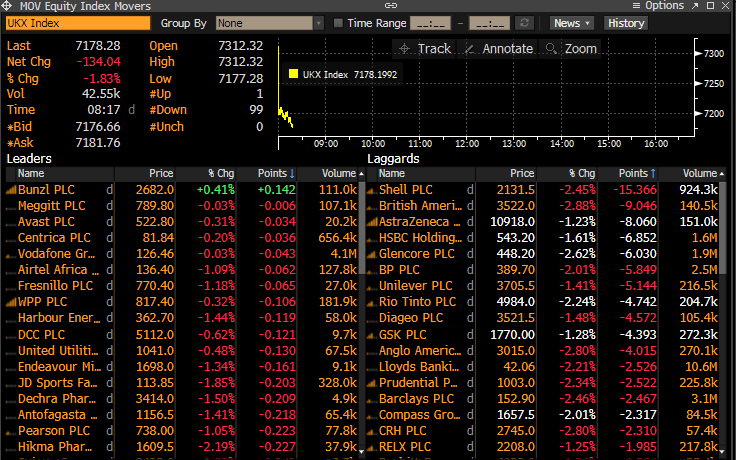
08:32 AM
FTSE risers and fallers
The FTSE 100 has dropped sharply in early trading as fears of a looming recession grip investors.
The blue-chip index crashed 1.8pc to 7,175 points, putting it on track for the biggest monthly loss since March 2020.
The decline would also be the first quarterly slump since September 2020, highlighting the extent of concerns over surging inflation and slowing economic growth.
The FTSE 250 is already in a bear market, down more than 22pc from its record closing high in September 2021.
The blue-chip index was almost entirely in the red, with oil heavyweights BP and Shell the biggest drags. HSBC, Lloyds and NatWest fell between 0.7pc and 1.4pc after Barclays cut its price targets on the banks' stocks.
British Gas owner Centrica bucked the trend, as did packaging firm Bunzl, which inched higher after upgrading its guidance for the year.
The domestically-focused FTSE 250 was also down 1.8pc.
08:20 AM
Heathrow cancels more flights as travel chaos deepens
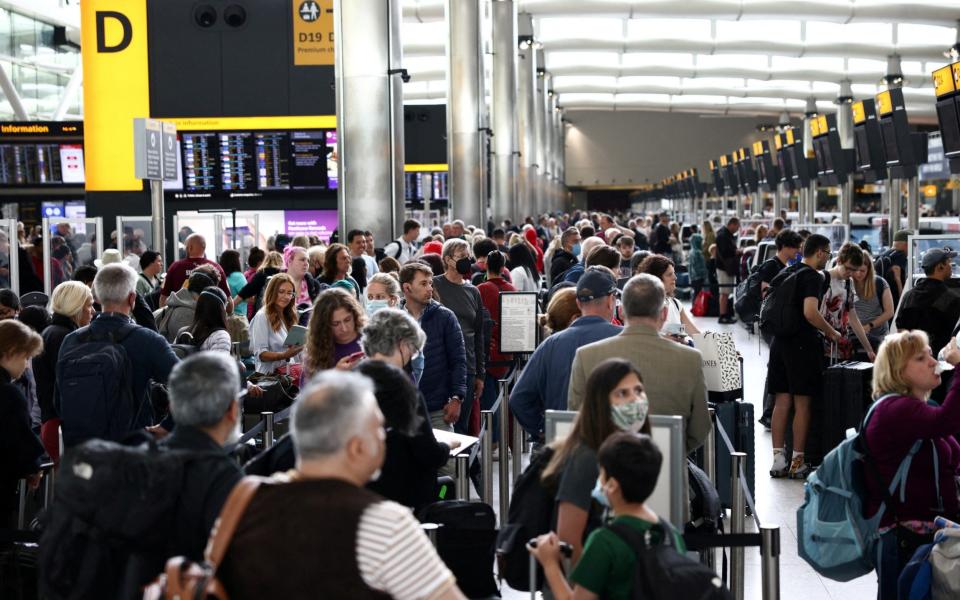
It seems there's no let up for passengers as Heathrow airport cancelled another swathe of flights this morning.
The travel hub asked airlines to cut 30 flights from their schedules amid concerns it's facing more passengers than it can safely handle.
A Heathrow spokesperson said: “We are expecting higher passenger numbers in tomorrow’s morning peak than the airport currently has capacity to serve, and so to keep everyone safe we have asked airlines to remove 30 flights from the morning peak for tomorrow only.
"We will work with airlines to get affected passengers rebooked onto other flights outside of the peak so that as many as possible can get away tomorrow, and we apologise for the impact this has on travel plans.”
Travellers have been hit by persistent delays and cancellations, as well as baggage chaos, as airlines and airports struggle to cope with a rebound in demand after the pandemic.
There's also the looming threat of strikes. Paris Charles de Gaulle has been forced to cancel 17pc of flights today due to a strike by firefighters that will lead to a shutdown of two out of the airport's four runways.
The French labour troubles could continue into the weekend and spill over to Orly, the capital's other main airport.
08:14 AM
Time running out to save economy, warn businesses
There's even more doom and gloom this morning thanks to a warning from the boss of one of the country's biggest business lobbies.
Shevaun Haviland, director-general of the British Chamber of Commerce, will today warn that time is running out to save the UK economy.
She will say that rising raw material costs, supply chain troubles and labour shortages are creating a "perfect storm" and urge the Government to "get its house in order".
Here's more of her planned speech to a conference, as reported by the BBC:
This has to change; we are on limited time.
They [the government] need to put in place support for businesses now to weather this storm. And, secondly, they need to work in partnership with us to develop a long-term economic strategy for growth.
08:08 AM
Reaction: UK economic strength won't last
Thomas Pugh, economist at RSM UK, warns the growth in UK GDP in the first quarter is likely to be short-lived.
The 0.8pc rise in GDP in the first quarter will almost certainly be followed by a contraction in the second quarter, potentially of 0.5pc.
A rebound in growth in the third quarter is likely to mean that the UK avoids a recession. But GDP is likely to be bumpy over the next year and the big picture is that the UK economy will probably be only fractionally bigger in 2023 than in 2019, before the pandemic.
While today’s data holds no surprises for the MPC, the double trouble of high inflation and weak demand allows the MPC no easy options.
The Bank of England’s chief concern remains the combination of high realised inflation and a tight jobs market that lifts expectations of future wage and price gains.
That’s why we think rates will rise to 2pc by November. That implies a hike at every meeting between now and then.
08:04 AM
UK business confidence drops to 15-month low
In another sign of how dire the outlook is, UK business confidence has tumbled to the lowest level since last year's lockdown.
Lloyds' gauge of confidence fell 10 points to 28pc in June, the lowest in 15 months. Firms also reported they have scaled back their own hiring intention.
Businesses had been proving more resilient than households to the fastest inflation in four decades, with sentiment holding up even as consumer pessimism reached a record.
But the latest survey suggests the tide might be starting to turn.
Hann-Ju Ho at Lloyds said:
Firms remain broadly positive but face several challenges ahead, including concerns around higher costs and slowing demand.
If these trends continue, businesses may have less scope to pass on higher costs to support their margins.
08:01 AM
FTSE 100 drops at the open
The FTSE 100 has dropped sharply at the open after the latest figures showed an unprecedented fourth straight quarter of lower household incomes.
The blue-chip index fell 1.5pc to 7,201 points.
07:50 AM
UK posts record current account gap
Britain's current account deficit has ballooned to £51.7bn – the biggest shortfall in records going back to 1955.
But the ONS said the figure, which equates to 8.3pc of GDP, should be treated with caution due to the impact of post-Brexit data collection changes on trade in goods imports and foreign direct investment.
Darren Morgan at the ONS said:
While today's figures are showing a very high balance of payments deficit, changes to the way EU imports are recorded, and challenges in collecting inward investment data, mean there is a higher degree of uncertainty with these numbers than usual.
The underlying UK current account deficit grew to £44.2bn (7.1% of GDP) in Quarter 1 (Jan to Mar) 2022.
Changes to data collection for goods imports and foreign direct investment mean these estimates are more uncertain than usual https://t.co/tQrGteIo42 pic.twitter.com/FZoXzKGfs1— Office for National Statistics (ONS) (@ONS) June 30, 2022
07:42 AM
Incomes fall for fourth quarter
Good morning.
UK household incomes slumped for an unprecedented fourth quarter as the cost-of-living crisis continues to eat into budgets.
The 0.2pc fall in disposable incomes in the first three months of this year marks the longest run of declines since records began in 1955.
It also leaves incomes 1.3pc lower than a year ago – even before April’s jump in energy bills and taxes kicked in.
The figures highlight the continued pressure on household finances amid soaring inflation fuelled by Russia's war in Ukraine, with prices rising for everything from food and fuel to clothing.
The ONS confirmed a 0.8pc growth in GDP in the first quarter. However, the economy is expected to contract in the second quarter as consumers begin to cut spending.
5 things to start your day
1) Oligarchs ‘must be prosecuted’ over dirty money in London MPs warns Government's inaction brands UK a 'safe haven for corrupt wealth'
2) Britain suffering faster and steeper downturn than Europe, warns Andrew Bailey Bank of England Governor says the country is suffering 'very large national real income shock'
3) Heinz baked beans removed from Tesco shelves in row over ‘unjustifiable’ price rise Supermarket points shoppers to rival products
4) Criminals using ‘deepfakes’ to apply for home working jobs FBI warns fraudsters are 'voice spoofing' in attempts to steal corporate information
5) Britain risks trade war as steel tariffs extended Steel tariffs extended by two years in probable breach of trade rules
What happened overnight
Tokyo shares opened lower this morning after US stocks ended flat, with investors searching for new trading cues.
The benchmark Nikkei 225 index fell 0.2pcat the open, while the broader Topix index lost 0.3pc.
The Dow Jones Industrial Average finished up 0.3pc while the broad-based S&P 500 slipped 0.1pc. The tech-rich Nasdaq index edged down less than 0.1pc.
Global markets were weighed down after US Federal Reserve Chair Jerome Powell spoke at an ECB Forum panel.
Coming up today
Corporate: Bunzl (trading statement)
Economics: GDP (UK), Nationwide house price index (UK), unemployment rate (EU), jobless claims (US), personal income (US), Chicago PMI (US)

 Yahoo Finance
Yahoo Finance 